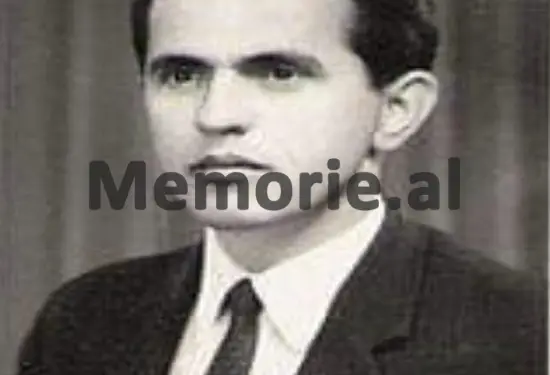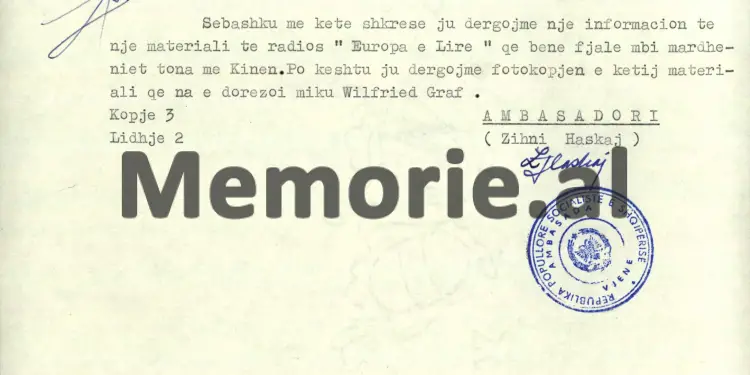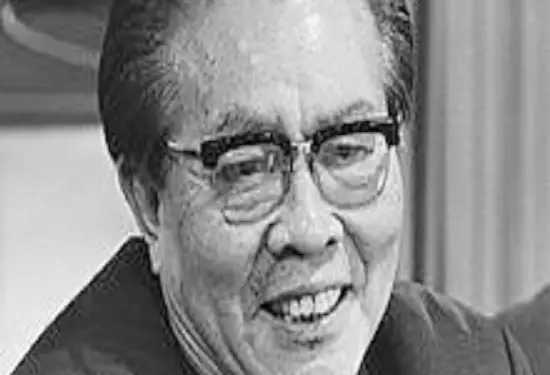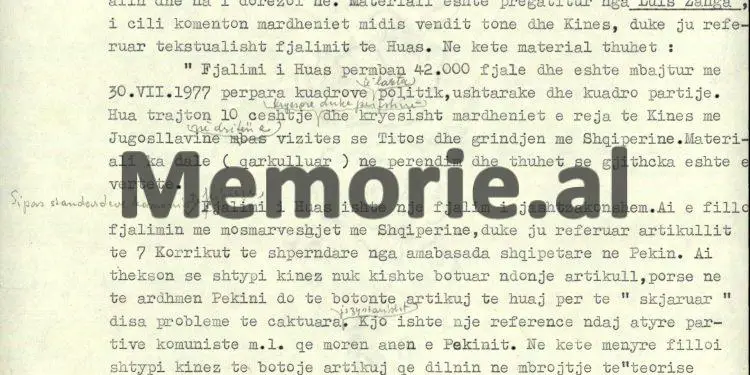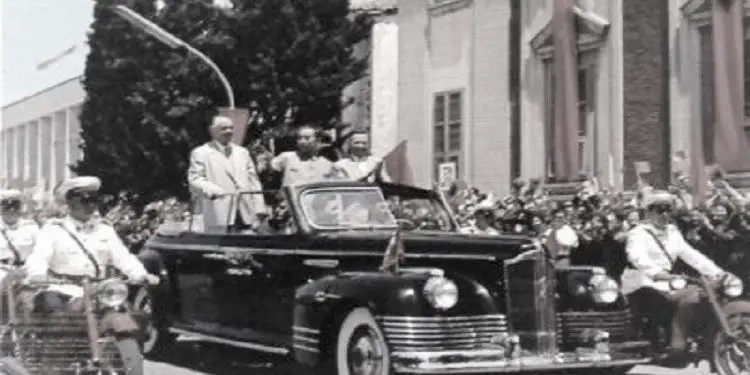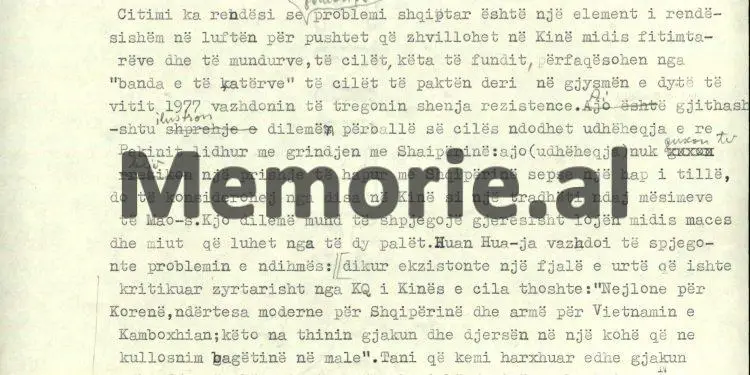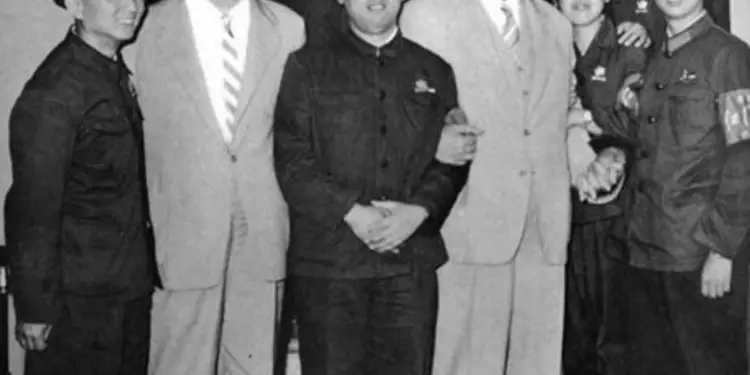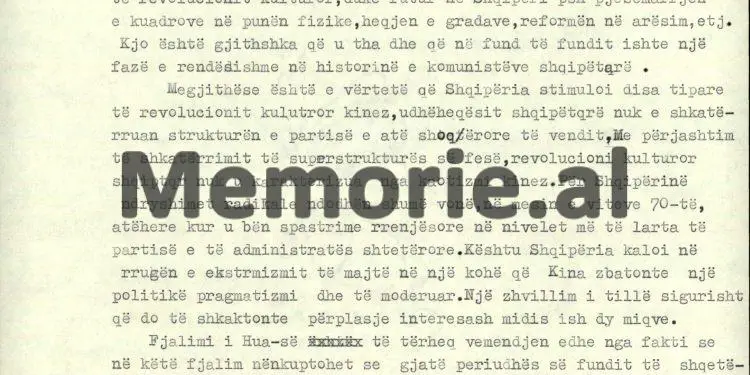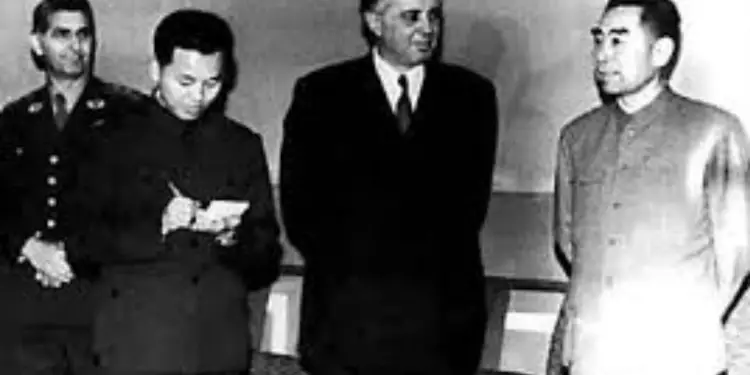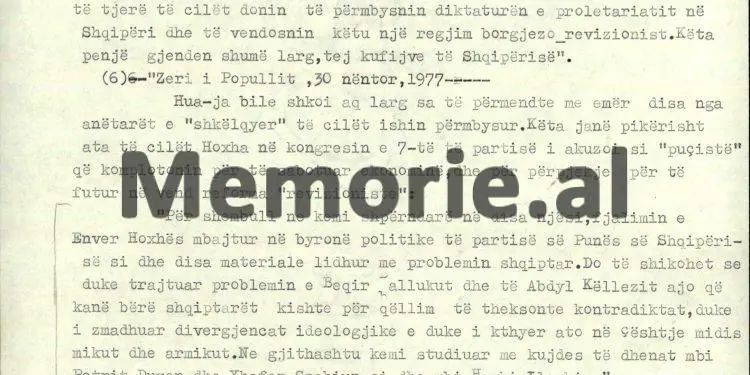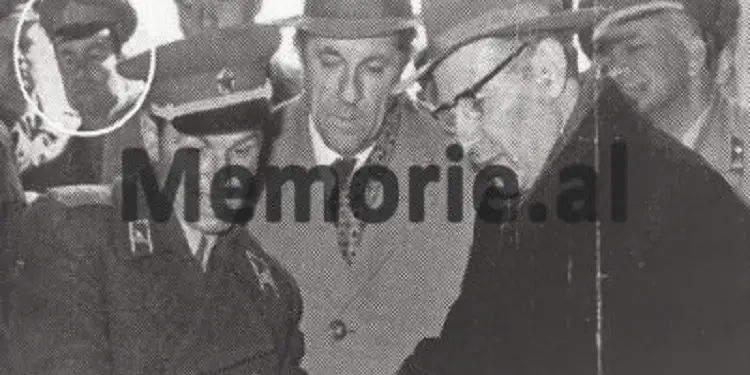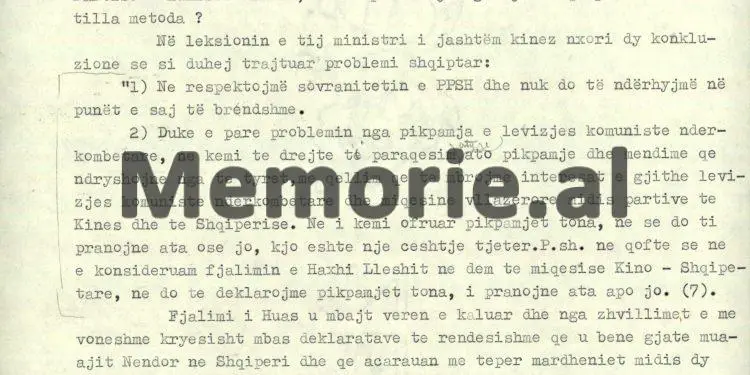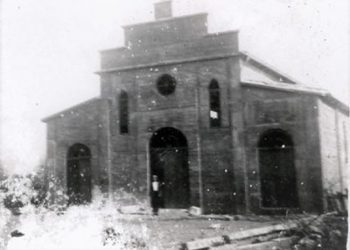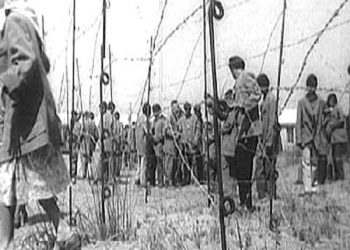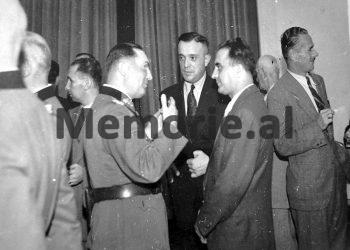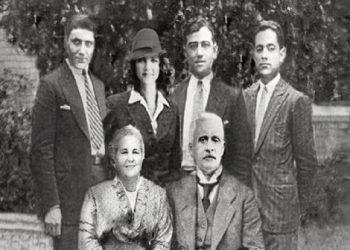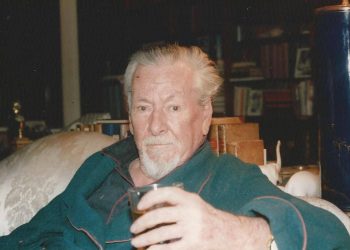Dashnor Kaloçi
The first part
Memorie.al/publishes some archival documents with the secret signature, extracted from the Central State Archive in Tirana (the fund of the former PPSh Central Committee), which belong to 1977 and are part of a file containing a correspondence between the Albanian embassy in Vienna and the apparatus of the Central Committee of the PPSh (Foreign sector), where it is about a material with comments made by Radio “Free Europe”, regarding the contradictions and the breakdown of official relations between the People’s Republic Socialists of Albania and the People’s Republic of China. In the documents in question, the Albanian ambassador Zihni Haskaj first explains the circumstances of how it became possible to find that material that was provided through the head of the office of the French news agency in Vienna, to whom he was able to secretly take it and photocopy it , Wilfred Graff, the friend of our country and one of the members of the Austria-Albania Friendship Association. According to Ambassador Haskaj, the material that was broadcast by Radio “Free Europe” was prepared by the journalist Luis Zanga, in which, among other things, it was said: Here Hua replaces the direct language, with an M-L analysis of the war of last for power in Albania. Of course, Albanians do not need to have a copy of Hua’s speech to prove the Chinese connection with the purged elements. Prime Minister Mehmet Shehu himself was the one who, in November 1977, gave an understanding of Beijing’s connection with the opposition in Tirana, when he said: “We know very well and have documented the origin of the pawns, of Beqir’s coup plot Balluk, Abdyl Këllez and other putschists, who wanted to overthrow the dictatorship of the proletariat in Albania and establish a bourgeois-revisionist regime here.
The document with the report-information drawn up by the Albanian ambassador in Vienna, Zihni Haskaj, sent to the Foreign Sector at the apparatus of the Central Committee of the PPSh, regarding the comments of Radio “Evropa e Lirë”, about the breakdown of official relations between Albania and China
PEOPLE’S SOCIALIST REPUBLIC OF ALBANIA
Embassy of RPSSH Austria
No. 54
Vienna on 7.4.1978
CENTRAL COMMITTEE OF ALP
(Foreign Sector)
MINISTRY OF FOREIGN AFFAIRS
T I R A N E
Along with this letter, we are sending you a piece of material from Radio Free Europe, which talks about our relations with China. We are also sending you the photocopy of this material that our friend Wilfried Graff sent us.
Ambassador
(Zihni Haskaj)
I N F O R M A T I O N
On a material of Radio “Free Europe”
In continuation of our telegram, below we are giving the content of the material that was prepared and distributed by the editors and political staff of Radio “Free Europe”.
It refers to a speech by Chinese Foreign Minister Huan Hua, held on 30.7.1977. As we informed you about this material, Wilfried Graff, member of the Austria-Albania friendship association, spoke to us.
This material was available to the head of the French news agency office here. Since Graff works there, he was able to surreptitiously photocopy the material, and delivered it to us.
This material was prepared by Luis Zanga, who comments on our relations with China, textually referring to Hua’s speech.
In this material, it is stated: “Hua’s speech contains 42,000 words and was held on 30.7.1977, in front of Chinese party, political and military cadres. Hua, deals with 10 issues and specifically China’s new relationship with Yugoslavia, after the visit of Tito, and the quarrel with Albania.
The material has circulated in the West and it is said that everything is true. That was an incredible speech. Hua began his speech on the disputes with Albania, referring to the July 7 article distributed by the Albanian embassy in Beijing.
He points out that the Chinese press had not published any articles but, in the future, Beijing would publish foreign articles to clarify certain problems. This was a reference to those m-l communist parties that sided with China. In this way, the Chinese press began to publish articles about the “three world theory”.
Huan Hua emphasized that according to the instructions of Hua Kuo Fen and Ten Hsiao Pin, articles that refuted the wrong views of Albanians would not be published. Such a position, according to Hua, would prevent the further escalation of divergences as well as confusion in the international communist movement.
The way in which Huan Hua tried to impress the listeners on the cause and origin of the conflict with Albania is interesting. Since we, Huan Hua emphasizes, did not want to give a cause to pervert our friends as well as to make our enemies happy, we have followed Chairman Mao’s order to maintain the friendship between the Albanians and the Chinese.
While we have done everything to convince the ALP, we wanted not to enter into controversy with the Albanians. Many friends were surprised by the controversy. Some comrades, who work in the directorates of foreign affairs, have adopted the attitudes of bourgeois politicians, who rejoice in the misfortune of others, and who have said that the second week of July was a black week for us.
They came up with this aphorism that: “Our friend in the South has gone to prison, our comrade in arms in the West has turned against us, and the tortoise has taken the road from the other side.” It seems to refer to Ali Bhutto, who was overthrown by a coup d’état, the dispute between Albania and China, as well as the case of the Chinese pilot who escaped to Taiwan with a “Mig-19”.
This quote is important because the Albanian problem is an important element in the power struggle that takes place in China between the victors and the vanquished. The latter are represented by the “Gang of Four” who, until the second half of 1977, continued to show signs of resistance.
At the same time, it presents the situation in which the new leadership of Beijing is in, regarding the attitude towards Albania. An open break with Albania would, by many in China, be considered a betrayal of Mao’s teachings. This dilemma can largely explain the cat and mouse game being played by both parties.
Huan Hua went on to explain that there used to be a saying that was criticized by the CCP Central Committee, which said: “Nylons for Korea, modern buildings for Albania, and weapons for Vietnam and Cambodia. These absorb our sweat and blood, while we graze the cattle in the mountains. Now that we have spent our blood and sweat, these three, who were good to them, abandoned us.”
There are many in China who say: “Now that Korea has secured our nanlons, it has changed a lot, Albania has forgotten its mother since it became Western-style buildings, and Vietnam and Cambodia, after securing weapons, started a war between them. “.
This has caused us a loss of our national prestige. These views are harmful, so we must clarify them. If my explanations are not enough then you add them. What the foreign minister apparently wanted was to raise the issue of aid.
He seems to have deliberately referred you to this problem, talking first about the opposition from the Central Committee (possibly during Mao’s time), from those who were against foreign aid and who later accepted. It seems that in this lecture, Huja has prepared the ground for the suspension of economic aid to Albania, which has now been stopped, judging by the serious economic situation that is being talked about in Tirana.
Then he jumped into a strong ideological discussion, strongly criticizing the politics of Enver Hoxha. He said that Albania has adopted the Cultural Revolution, taking cadres to physical work, removing ranks, etc., and this was an important phase of the Albanian communists.
Despite these things, the Albanian communist leadership did not destroy the party structure and the social structure of the country. With the exception of the destruction of religion, the Albanian Cultural Revolution was not engulfed by Chinese chaos. For Albania, the radical changes happened very late, in the mid-70s, when the radical purges of the high state levels took place.
Thus, Albania went down the path of left-wing extremism while China was implementing the moderate pragmatist policy. Such a development would certainly cause such a clash between the two former friends.
Hua’s speech draws attention to the fact that during the last period of Albanian history there is a Chinese connection which has to do with these concerns: “Despite these measures, Albania has neglected the theoretical construction of Marxism-Leninism.
Addressing the ideological divergences within the Party, the Albanians failed to solve the problems. On the contrary, they extinguished the war, as well as inflated some non-antagonistic contradictions, turning them into antagonists. This has caused widespread attacks on some excellent members of the ALP, as well as caused heavy losses to the party itself.”
Here Huaja replaces direct language with an M-L analysis of the recent power struggle in Albania. To refer to those, who have been flooded by calling the members of the Albanian Party “excellent”, is not only a confrontation with Enver Hoxha, personally, but also the first indirect Chinese affirmation of the existence of a pro-Chinese wing in Albanian hierarchy. Of course, Albanians do not need to have a copy of Hua’s speech to prove the Chinese connection with the purged elements. Prime Minister Mehmet Shehu himself was the one who, in November of 1977, hinted at Beijing’s connection with the opposition in Tirana, when he said:
“We know very well and have documented the origin of the coup plotters of Beqir Balluk, Abdyl Këllez and other coup plotters, who wanted to overthrow the dictatorship of the proletariat in Albania and establish a bourgeois-revisionist regime. These, penj, are found far away, beyond the borders of Albania”. (-‘Voice of the People’, November 30, 1977-)
Huaja even goes so far as to mention by name some of the “excellent” members who were overthrown. These are exactly those whom Hoxha, at the 7th Congress of the Party, accused as “putschists” who conspired to sabotage the economy and for the efforts to introduce “revisionist” reforms in the country:
“For example, we have distributed Enver Hoxha’s speech, held at the Political Bureau of the Albanian Labor Party, as well as some materials related to the Albanian problem, in several units. It will be seen that by addressing the problem of Beqir Balluk and Avdyl Këllez, what the Albanians have done was aimed at emphasizing the contradictions, enlarging the ideological divergences and turning them into issues between friend and enemy. We have also carefully studied the data on Petrit Duma and Xhafer Spahiu, as well as on Haxhi Lleshi”.
Balluku was a member of the Politburo and Minister of People’s Defense, Këllezi was a member of the Politburo and chairman of the State Plan Commission and President of the China-Albania Friendship Society, while Dume was a candidate for the Politburo and Chief of Staff of General. All three, along with several others, were purged and there were many rumors that Balluku was executed. The mention of two other names is surprising.
Xhafer Spahiu lost his position as vice-chairman of the Council of Ministers, and in the 7th Congress, he was demoted from Candidate of the Political Bureau to a member of the Central Committee. However, in 1976, he became Minister of Industry and Mines. Haxhi Lleshi, a member of the Central Committee for a very long time, is the head of state. It is possible that the Chinese mean his role in the internal struggle for power, being the head of state, and it is possible that they call his activity harmful in terms of state relations between the two countries.
The distribution of Hoxha’s speech and other materials to “several units” in China may indicate that Beijing’s leadership has used the Albanian example to consolidate its power within the country. They can draw a parallel between Hoxha’s dictatorial methods in dealing with his opponents in the Party, with the radical politics of the “Gang of Four” in China.
The term “unit” seems to refer to military units, which are being equipped with original materials that show Hoxha’s unique methods in the matter of purges at high military levels in Albania. In this way, the new Chinese leadership also seeks to justify its actions against the Albanians, saying to elements who still doubt, within the Chinese Communist Party, what do you expect from people who use such methods?
In his lecture, the Chinese Foreign Minister drew two conclusions on how the Albanian problem should be handled:
We respect the sovereignty of the ALP and will not interfere in its internal affairs.
Looking at the problem from the point of view of the international communist movement, we have the right to present those views and opinions that differ from theirs, in order to protect the interests of the entire international communist movement and brotherly friendship between the parties of China and Albania. We have offered our views, whether they will accept them or not, that is another matter. For example, if we considered Haxhi Lleshi’s speech to the detriment of Sino-Albanian friendship, we will declare our views, whether they accept it or not.
Hua’s speech was held last summer, and from the subsequent developments, mainly after the important statements that were made during the month of November in Albania, and which further aggravated the relations between the two parties, it seems that the Albanians do not listen to the arguments chinese. Huaja was sure that the answer from Tirana would be negative.
His main problem, speaking about the Albanian issue, was to convince his listeners that the break with the Albanian communists was not caused by the new course of the Chinese leadership, but by the harsh, stubborn and ungrateful attitude of the leader Hoxha. The importance of Hua’s speech lies not only in the fact that it sheds light on the causes of the Sino-Albanian conflict, but also in the fact that the Albanian problem has played a role in the struggle for power in Beijing.
It is possible that it was Lleshi’s speech, given on the occasion of the 32nd anniversary of the country’s liberation. The speech echoed the line of the 7th Party Congress. (“Voice of the People”, 30.11.1976)/Memorie.al
Ambassador
Zihni Haskaj




